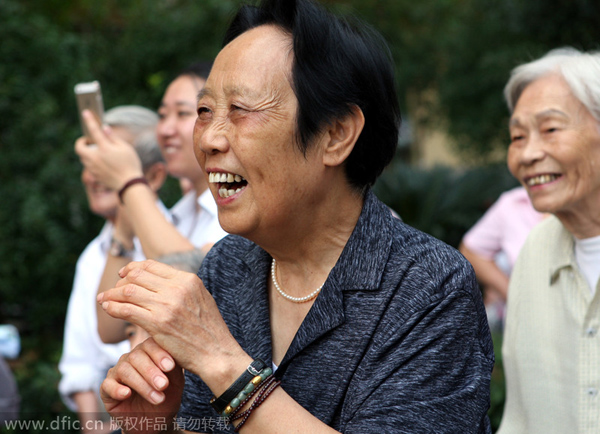 |
|
Seniors watch performances at retirement home in Hangzhou, Zhejiang province, Sept 26, 2014.[Photo/IC] |
BEIJING -- China will extend old-age insurance to its full population, the leadership decided at a key meeting which ended on Thursday.
State capital will be used to augment the existing social security fund, according to a communique released after the four-day Fifth Plenary Session of the 18th Communist Party of China (CPC) Central Committee.
Nearly 200 million Chinese are yet to be included in the country's old-age insurance scheme, said Yin Weimin, minister of human resources and social security in March.
The communique further vowed that "China will implement the critical illness insurance system in full scale," suggesting that this insurance will also be rolled out to the entire population.
As of the end of September 2014, about 650 million of the 1.3 billion Chinese were covered by critical illness insurance, preventing them from bankruptcy as a result of medical bills.
The communique said China will "hold on to the path of development shared by all," working toward "development for the people, by the people and shared by the entire population."
It also stressed equal opportunities and social security so that everyone can attain a moderately prosperous life.
The government will ensure fairer distribution of capital to poor regions and those with high concentrations of ethnic minorities, and better care will be provided to children, women and seniors left in villages by their parents, spouses and children working in cities as migrant workers, the CPC vowed.
The nation will also strive to improve education, promoting universal education for students of senior high school age while ensuring the policy of nine free years of compulsory education is applied nationwide.
The communique said the government will remove high school education tuition fees for poor students and provide subsidies for them, "gradually" waiving tuition fees for people receiving secondary vocational education.
On the medical front, the country will rationalize drug prices, coordinate health insurance with medical care, and set up a basic health and hospital management system covering both urban and rural areas, according to the document.
It also stressed narrowing income gaps.
